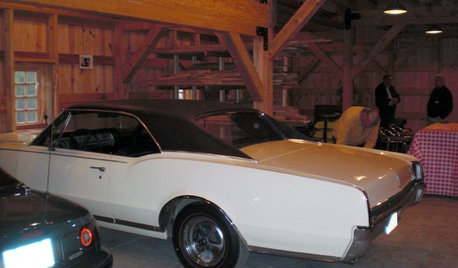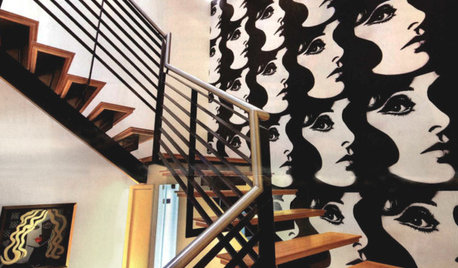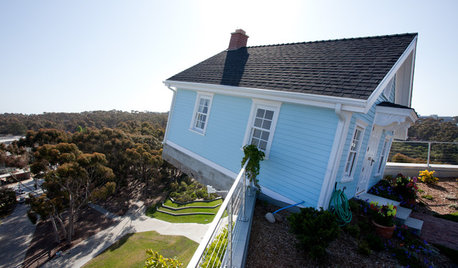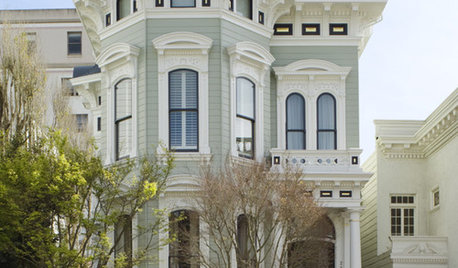How do you feel about anachronisms?
friedag
16 years ago
Related Stories

PRODUCT PICKSGuest Picks: Beautiful Things You Can Feel Good About Buying
Upcycled, ecofriendly or just made responsibly, these home accessories and furniture pieces will keep your conscience clear
Full Story
FEEL-GOOD HOMEGuys Tell Us About Their Favorite Places at Home
For Father’s Day, Houzz men show us the places in their homes where they like to hang out
Full Story
SHOP HOUZZShop Houzz: About Face
Feel the power of human connection with portraiture from the Houzz Shop
Full Story0

EXTERIORSCurb Appeal Feeling a Little Off? Some Questions to Consider
Color, scale, proportion, trim ... 14 things to think about if your exterior is bugging you
Full Story
DECORATING GUIDESFeel Free to Break Some Decorating Rules
Ditch the dogma about color, style and matching, and watch your rooms come alive
Full Story
LIFE3 Ways to Get Unstuck — About Organizing, Decorating, Whatever
Break out of the do-nothing rut to accomplish your goals, whether at home or in other parts of your life
Full Story
GARDENING GUIDESNew Ways to Think About All That Mulch in the Garden
Before you go making a mountain out of a mulch hill, learn the facts about what your plants and soil really want
Full Story
COLORYou Said It: ‘Adding Color Is About So Much More Than Shock’ and More
Highlights from the week include color advice, Houzzers helping Houzzers and architecture students building community housing
Full Story
FUN HOUZZArt House on the Edge Makes a Statement About ‘Place’
Gravity-defying installation in San Diego features a cottage dangling from a university roof, challenging the notion of home
Full Story



frances_md
friedagOriginal Author
Related Discussions
How do you feel about nieghbors spraying?
Q
How do you feel about solid surface (Corian) shower walls vs tile?
Q
How do you feel about bead board?? Cabin remodel!!
Q
How do you feel about being an overnight guest in someone's home?
Q
cindydavid4
friedagOriginal Author
cindydavid4
veer
annpan
cindydavid4
friedagOriginal Author
martin_z
woodnymph2_gw
veer
martin_z
cindydavid4
friedagOriginal Author
Kath
georgia_peach
woodnymph2_gw
friedagOriginal Author
friedagOriginal Author
cindydavid4
rosefolly
veer
woodnymph2_gw
georgia_peach
woodnymph2_gw
cindydavid4
veer
sheriz6
cindydavid4
friedagOriginal Author
veer
woodnymph2_gw
cindydavid4
veer
leel
petaloid
cindydavid4
veer
leel
mariannese
woodnymph2_gw
georgia_peach
cherry_lane
rosefolly
cindydavid4
bookmom41
woodnymph2_gw
froniga
ccrdmrbks